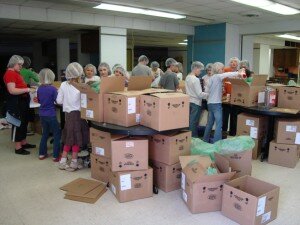As many sports, school, and television series conclude at the beginning or midway through the summer, people often choose to partake in summer reading. I choose summer reading to relax, to be entertained, and to, most importantly, to learn. Because me and several other of the folks are participating in some summer reading, I’ve compiled a list of five ways you can volunteer with books!
- Read! Read about ways in which you can coordinate volunteers in your community. Books related to volunteerism include the training and recognition of volunteers, as well as Collaboration and Community Organizing. Additional books of volunteerism highlight disaster response, diversity, virtual volunteering, leadership, and recruitment. As you may have noticed, there is so much information out there that is focused on volunteerism. So get to reading and learning!
- Instead of throwing your books away, donate your books to local organizations! While shopping in thrift stores, I often find myself shopping for books and other
 items, just to see if I can catch a deal! In addition to finding great deals, book donations allow for low-income families to secure summer reading! Thanks to the YMCA, the Boys and Girls Club, and the Salvation Army, and several other organizations, you can donate your books or schedule your books to be picked up.
items, just to see if I can catch a deal! In addition to finding great deals, book donations allow for low-income families to secure summer reading! Thanks to the YMCA, the Boys and Girls Club, and the Salvation Army, and several other organizations, you can donate your books or schedule your books to be picked up. - Gather some friends and coordinate your own book drive in your neighborhood or community! Coordinating a book drive first begins, with marketing your book drive. Print flyers or mention the book drive in your facebook or twitter status to get the word out! This will allow you to do good, meet people in your community, all while hanging out with your friends.
-
Participate in Books for Africa! With books for Africa, you can either contribute a monetary donation or book donation for a great cause. Additionally, Books For Africa accepts: 15 years old or newer popular fiction and nonfiction reading books (soft and hard cover); 1996 or newer publish date primary, secondary, and college textbooks (soft and hard cover); 1996 or newer reference
 books such as encyclopedias and dictionaries; 1996 or newer publish date medical, nursing, IT, and law books. Books for Africa also accepts school/office supplies including, paper, pencils, pens, wall charts, maps, etc.
books such as encyclopedias and dictionaries; 1996 or newer publish date medical, nursing, IT, and law books. Books for Africa also accepts school/office supplies including, paper, pencils, pens, wall charts, maps, etc. - Recycle your books! Books wear out. They get water damage. They break down. You get tired of them or you’ve simply already read them. When your books have passed their time in your life, there are lots of things you can do with them including recycling them. Books cannot usually be recycled along with your other paper products, like newspaper, because of the binding glue. Book Destruction, a Grossman Group company, recycles whole books. They grind the books down and process them by repulping the paper to make new paper. Green Earth Book Recyclers works with Book Destruction to collect used textbooks from college students for recycling.
There are plenty of ways you can participate in book volunteerism this summer! We’d love to hear in the comments how you plan to volunteer with books or volunteer in general this summer!


 Apparently, so did a lot of other people, as suddenly I saw people in the online community running off to donate their hair to the oil spill clean-up efforts.
Apparently, so did a lot of other people, as suddenly I saw people in the online community running off to donate their hair to the oil spill clean-up efforts.

 xactly where the volunteer opportunity will be taking place.
xactly where the volunteer opportunity will be taking place.


